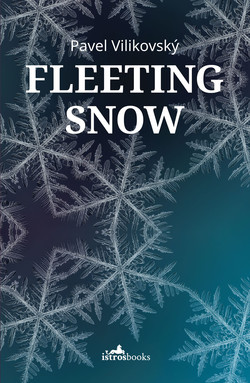Читать книгу Fleeting Snow - Pavel Villikovsky - Страница 26
На сайте Литреса книга снята с продажи.
Оглавление1.i
The second of the Ten Commandments says: ‘Thou shalt not take the name of the Lord thy God in vain.’ To me this doesn’t make any sense, for how can we take his name in vain if the Lord doesn’t have one? A six-year-old Down’s syndrome girl put her finger on it when she said: ‘God makes the wind and God makes the rain but he has no surname.’ Let me just add that, in fact, God doesn’t have a Christian name either, ‘God’ is just a designation of his office.
Things were different in antiquity, in the time of the ancient Greeks and Romans; they had so many gods they had to give them names to tell them apart and they had allocated each their own portfolio to stop them from stepping on each other’s toes. Native Americans in the Westerns call their god Manitou, even though Štefan claims that the Algonquian Indians, such as the Menominee, have no notion of God in our sense of the word and that they use the name Manitou to refer to the mysterious, impersonal magic force that rules all Nature.
We have only one God, albeit a tripartite one – the Trinity is jointly and inseparably composed of the Father, the Son and the Holy Spirit. However, these are not names, just terms denoting their familial relations. Jesus Christ, too, is just the Son’s worldly, civilian name, one he used during his temporary stay among people on earth. We imagine the Holy Spirit as a carrier pigeon flying around the world and consecrating everything it alights on but it doesn’t have a proper name either, just a title.
Our God doesn’t need a name because he is the One and Only, the unique One; in fact, he might be the only truly unique … what? Creature? Being?
‘Do you think we are beings?’ I asked Štefan. ‘Would you refer to yourself by this term?’
As a man of science, Štefan is not keen on vague debates that lack a solid factual foundation.
‘Provided we use the term simply to refer to a living being’, he said, ‘why not? But if you have some unique individual features in mind, I wouldn’t be so sure.’
‘I know I’m not unique’, I said, ‘but I treat myself as if I were. I do it to boost my confidence. I have nothing against “creature”, I’m sure that’s the correct term, but I feel more dignified as a “being”.’
‘The only thing unique about people is that they are all much of a muchness’, Štefan said. ‘Otherwise no research or study, no human science would be possible. We would have to study each individual separately and any conclusions would apply only to this one person.’
Being a scientist, he has no choice but to see things this way. But I think he takes everything too literally.
‘Entire fields of science would collapse’, he said. ‘Psychology. Psychiatry. Mind you, these are not exact sciences. But take medicine in general. Where would we be if everyone suffered from their own, unique illness? And what about pedagogy? It would be impossible to apply any general rules, there would be no unified curricula and teaching methods, every pupil would have to have their own teacher. And the list could go on and on, ad infinitum.’
He was clearly warming to the subject, getting quite fired up.
‘If people were truly unique’, he said, ‘everyone would have their own unique language and we wouldn’t be able to communicate at all.’
And that would be it for the language of the Menominee, I thought, including bilabial consonants. So there’s the rub for him, even though he wouldn’t say so out loud. But I didn’t want to stir things up any more.
‘So, if you insist on being so precise’, I said, ‘on being such a stickler for exact terms, please tell me how you would define God. Who would you say He was? A creature? A being? Or something else?’
That gave him food for thought. ‘An entity’, he said in the end.
That sounded good and scientific, although to me it didn’t sound particularly precise either. But God is such a useful term exactly because everyone can imagine it to mean whatever they want it to.
